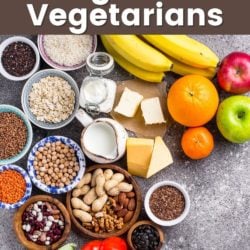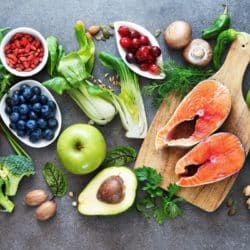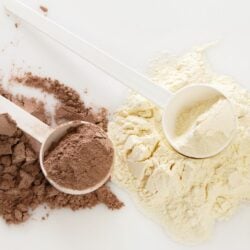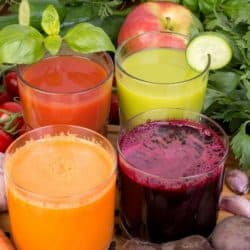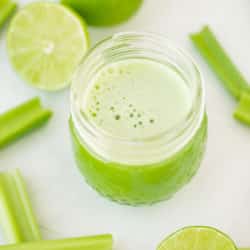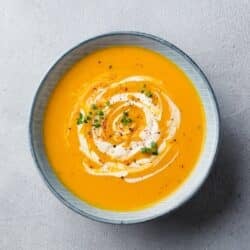Differences Between Vegan and Vegetarian Diets
Vegan and vegetarian diets are variations of eating plant-based. In this article, we’ll review the important differences between veganism and vegetarianism including what is included and the potential health benefits of each diet.
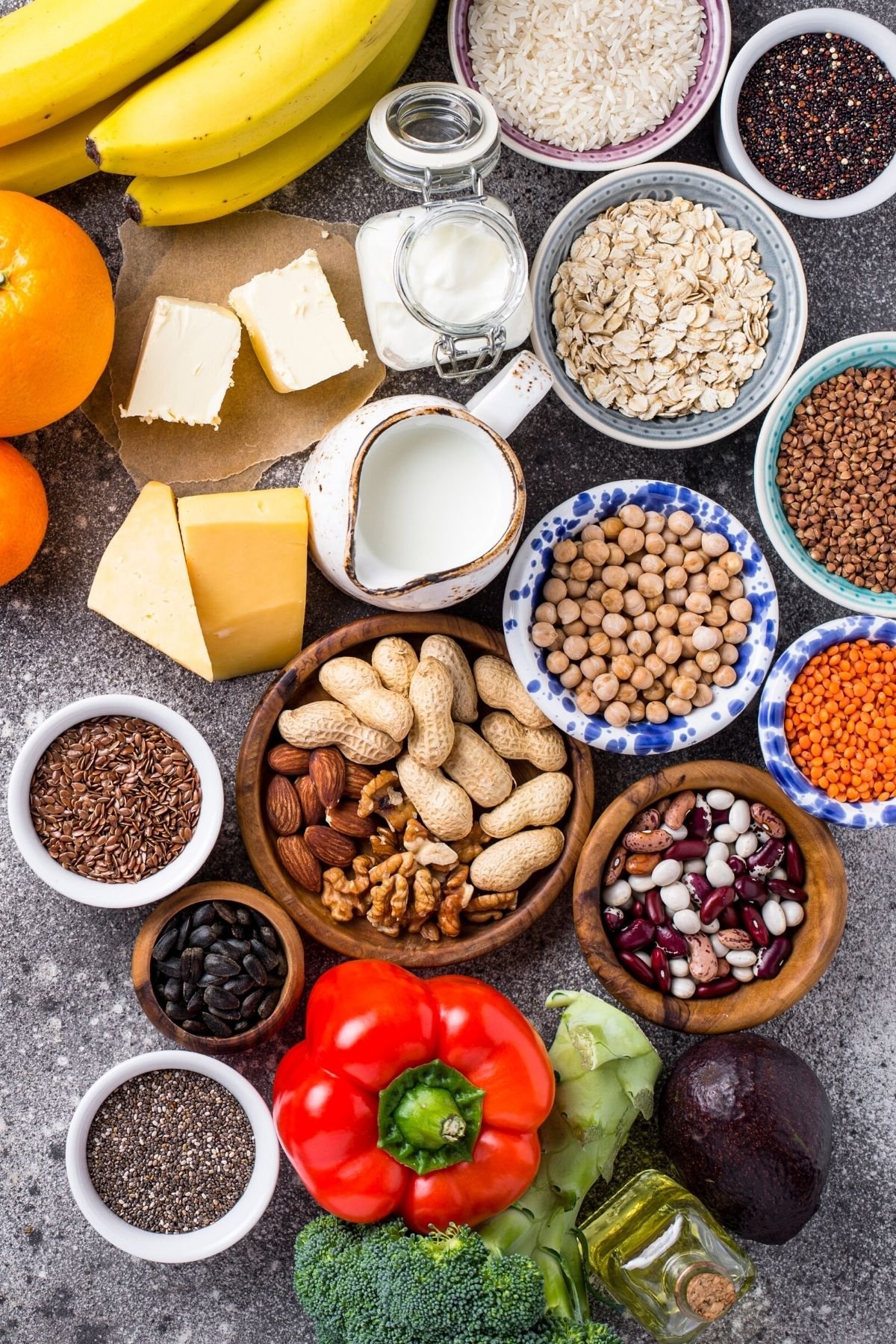
Vegan and Vegetarian Similarities
Those following either vegetarian or vegan diets will avoid meat and any animal products.
This means that neither vegans or vegetarians will consume:
- meats, such as pork, beef, lamb, and bison
- poultry, such as turkey, chicken, duck, and goose
- seafood, such as fish and shellfish
- fats or stock produced from animals including lard or bone broth
- the byproducts of animal slaughter, such as rennet (which comes from the stomach lining of young animals) and gelatin (made from processing animal skins, bones, and tissues)
- insects
There are a few variations of the vegetarian diet that are closer to the vegan diet, with ovo-vegetarians also excluding all dairy products, and lacto-vegetarians excluding eggs.
Both vegetarians and vegans tend to enjoy a range of foods including vegetables, fruits, grains, seeds, nuts, and beans.
They may also enjoy meat substitutes made with any of these ingredients. These include tofu (made from soybeans) and seitan (made from wheat protein).
Some vegetarians will – like vegans – also avoid non-edible animal byproducts like leather, or any products that are tested on animals.
Both vegetarian and vegan diets are considered among the best diets for climate change.
Vegan and Vegetarian Differences
The reasons for following a vegetarian diet can be varied. Although it is mainly chosen on moral grounds to prevent the slaughter of animals, it is sometimes based on religion (Hinduism, for example). And sometimes people simply choose to avoid meat because they just don’t like the taste or texture.
The vegan diet, however, is much more restrictive than vegetarianism. In fact, it is not just a diet – it is more of a lifestyle, with principles that go beyond the kitchen. For people who solely want the potential health benefits of a vegan diet, they may often called themselves “plant-based.”

Vegans believe that animals should be afforded the same rights as humans and that they are not here to serve us in any way.
In addition to avoiding all the foods listed above, vegans will also avoid all animal products – even those that do not involve the slaughter of animals. These include dairy, eggs, cheese, honey, and any foods containing them, such as yogurt and ice cream.
Vegans exclude these foods because of the cruelty that they believe is associated with their production.
For example, calves are taken from cows on dairy farms at just one day old, causing great distress to both. And hens used in commercial egg production likely do not have the “happy” lives the egg industry will have us believe.
Vegans will not wear any clothing or use any accessories made with animal products, such as wool, silk, and fur. This also includes soaps and candles made with animal fats like tallow, or latex products containing casein. Nor will they condone the use of animals in any form of entertainment including circuses or horse-drawn carriages.
Which is Healthier?
It is not easy to say whether it is healthier to follow a vegan diet over a vegetarian one, or vice versa. This is because each diet has advantages over the other – and some disadvantages too.
The good news, however, is that both diets offer plenty of health benefits. Because they tend to contain a variety of nutrient-dense whole foods, they provide lots of vitamins and minerals. These can help protect against serious illness and keep weight under control.
Note: please be aware that there are also some concerns regarding the long-term health consequences of vegan and vegetarian diets. Vegans especially need to be careful to supplement with certain nutrients and need to be aware of the potential problems with a plant-based diet.
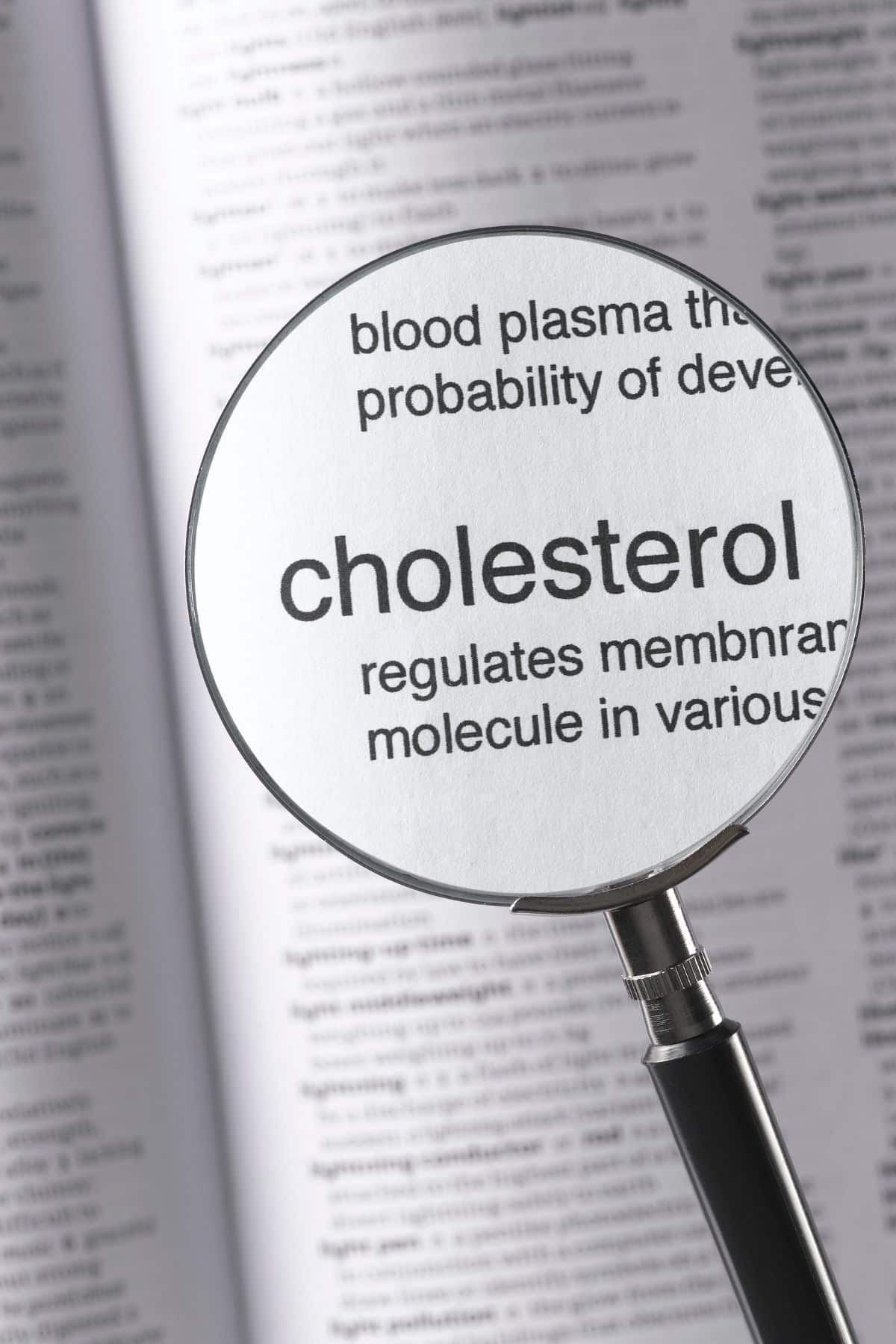
Lower cholesterol levels
Both vegan and vegetarian diets are useful for keeping cholesterol levels in check. This article published in 2017 concluded that they are associated with lower levels of LDL cholesterol than omnivorous diets (ones that include meat).
Yet it is likely that vegan diets may just have the edge, probably because they exclude foods like cheese and butter. These foods are high in saturated fat, which has been shown to be linked to increased levels of LDL cholesterol.
Reduced body weight
Research indicates that the vegan diet may be a little better than a vegetarian diet for weight loss. This large scale study published in 2006 and the subsequent 2014 review involved almost 22,000 people and showed that the BMI of vegans is generally lower than that of meat-eaters and vegetarians.
More recently, a group of overweight adults was studied during a 16-week trial. It was found that those in the vegan group lost more abdominal fat than those who followed their current diet, which could include animal protein.
See my related article with healthy weight loss tips for women.
Decreased risk of cardiovascular disease
All plant-based diets, whether vegetarian or vegan, have been shown to decrease the risk of cardiovascular disease.
However, there is no research that clearly demonstrates that one type of diet is better than the other in this respect.
The authors also noted that the benefits of plant-based diets may be a result of an overall reduction of animal products and an increase in plant foods, as opposed to determining that there is an increased risk of heart disease associated with any amount of consumption of animal products. The study also did not show that dairy or seafood resulted in any increased risks.
Essential omega-3 fatty acid intake
Omega 3 fatty acids are “essential” because our bodies can’t make them. We have to get them from food.
There is a risk that vegans can become deficient in omega-3 fatty acids, even if they try to obtain them from plant sources. This is because our bodies can only convert a very small amount of the type of omega-3 fatty acid found in plant-based foods to the form we really need.
This issue does not usually affect vegetarians or pescetarians, because they obtain this nutrient more easily from eggs or seafood.
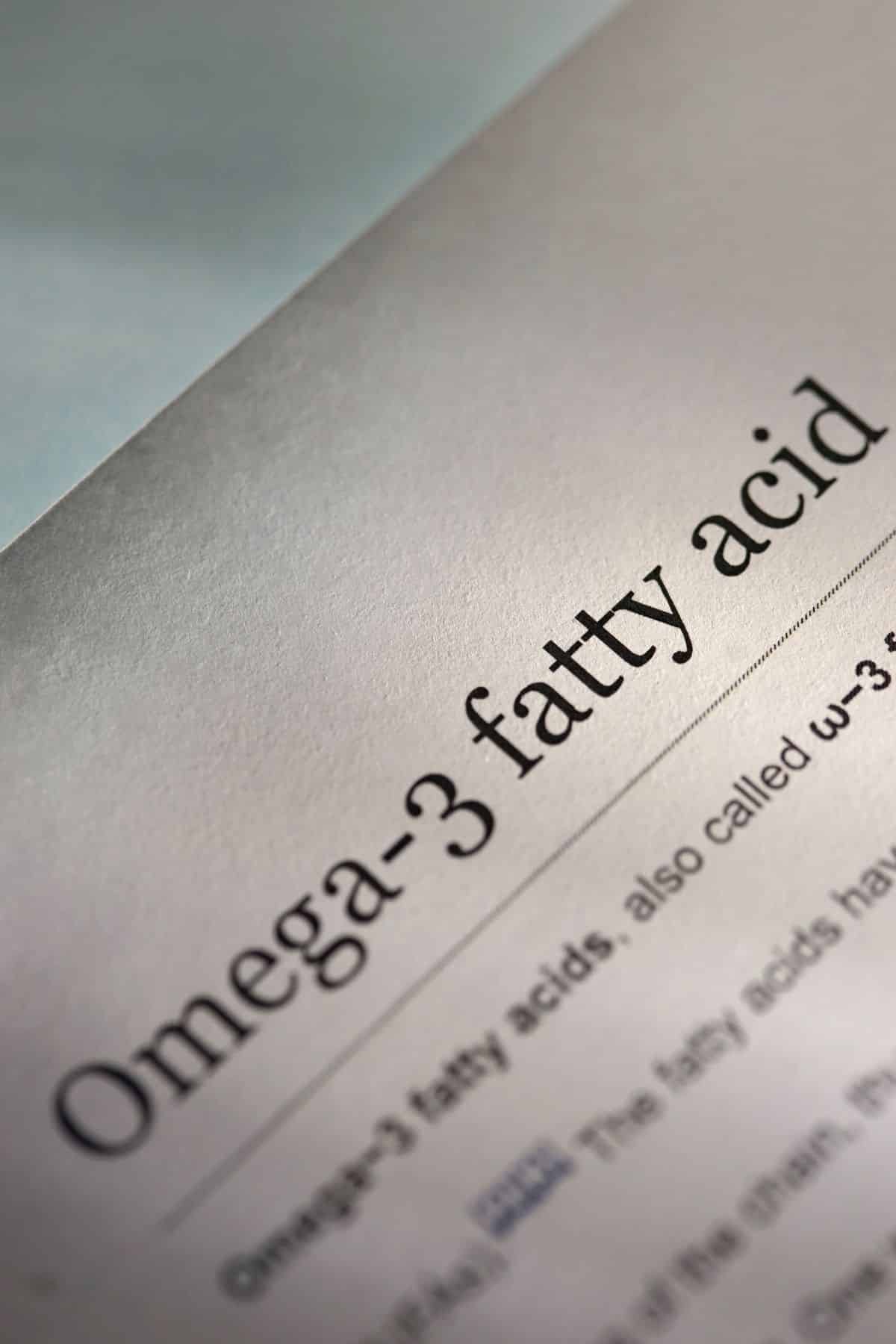
Intake of iron, calcium, zinc, and vitamin D
Without good planning, both vegetarians and vegans are at risk of consuming too little of some micronutrients.
But studies have shown that the risk is a little higher for vegans, as vegetarians and pescatarians are able to get these nutrients through sources such as dairy or seafood.
Other considerations
Dairy foods and shellfish are common allergens, so some might consider the vegan diet healthier because it eliminates them and the associated risks altogether.
However, gluten and sugar are still part of vegan and vegetarian diets which can lead to inflammation and blood sugar issues. See my article outlining sugar-free diet benefits.
There is also evidence to suggest that vegans tend to adhere to a lifestyle that is generally more healthful. This Argentinian study concluded that – while vegetarians have healthier lifestyle habits than non-vegetarians – those following a vegan diet were better at adhering to them, and avoiding unhealthy habits like smoking.
They defined healthy habits as consuming a whole-food, plant-based diet, drinking more than 8 glasses of water every day, exercising daily, and getting plenty of exposure to sunlight.
However, it should also be noted that there are serious health risks for both vegan and vegetarian diets, but especially with strict vegan diets. Some of these health risks include anemia and a risk of depression from the lack of omega-3 fatty acids. Eating disorders can also occur or be exacerbated by vegetarian or vegan diets.
Be sure to consult with your healthcare professional or a registered dietitian before adopting a vegan or vegetarian diet. And, if you have a history of eating disorders, you may need to consult with an eating disorder therapist as well.
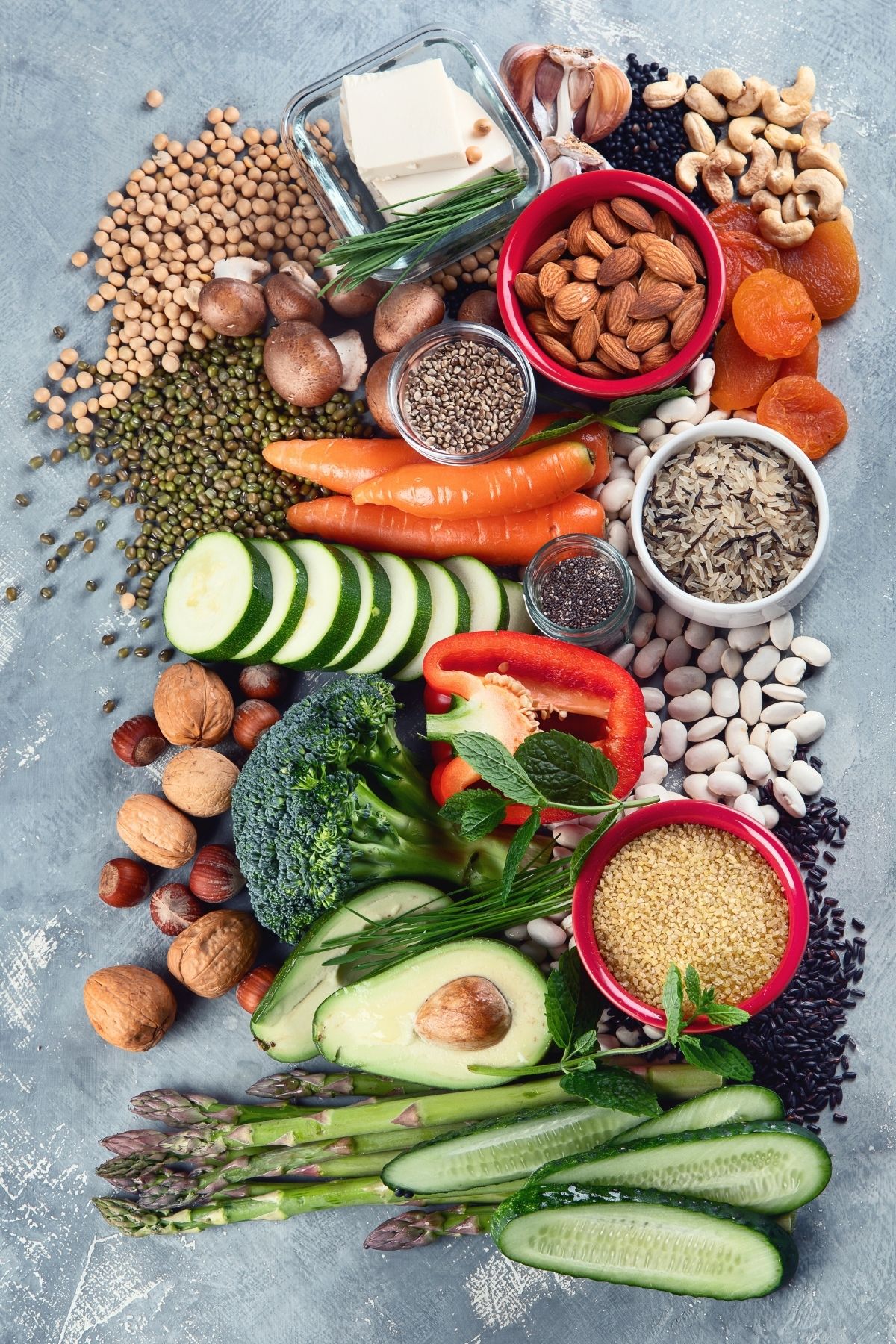
FAQs
A vegetarian avoids eating all meat and seafood and a pescatarian will not eat land animals but will still consume fish and seafood.
A flexitarian diet – also known as a semi-vegetarian diet – involves cutting back on the consumption of animal protein. There are no pre-determined quantities – a flexitarian may eat meat as little as once a week or as often as once a day. Generally, flexitarians opt for organic or free-range meat products when they choose to consume them.
Related Diet Articles You Might Like
- Choosing Between Paleo, Keto, Whole30, Vegan, & Clean Eating Diets
- 8 Vegan Diet Dangers (& How to Avoid Them)
- Best Diet for PCOS
- Tips for Starting a Gluten-Free & Dairy-Free Diet
- How to Fight Fatigue on a Vegan Diet
Conclusions
Whilst each may have its own advantages and disadvantages, there are many health benefits to following either a vegetarian or vegan diet. Whichever you choose, you will need to plan carefully to make sure you are getting enough of the nutrients your body needs. But a diet filled with minimally processed, whole foods is a big step towards a healthy lifestyle and a lower risk of serious illness.
Don’t forget to join my newsletter list to get exclusive clean eating recipes and tips. The newsletter is 100% free with no spam; unsubscribe anytime.


